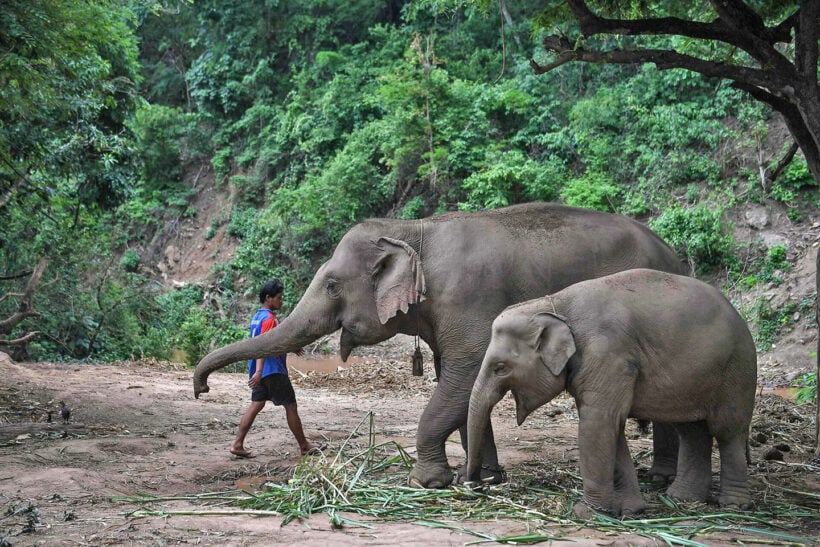Massive elephant migration causes problems in the North

The Covid-19 crisis has shuttered elephant camps across Thailand’s North and Northeast, most of which relied primarily on tourist revenue. Now around 1,000 elephants, threatened by starvation, have journeyed through the hills of northern Thailand, making a slow migration to their homes.
For many of the animals, home is the village of Huay Pakoot in Chiang Mai province, where generations of ethnic Karen elephant handlers have been rearing the giant mammals for 400 years. But it is around the tourist hub in Chiang Mai City, 180 kilometres away, that mahouts and their elephants work, performing for foreigners in amusement parks or “elephant sanctuaries”.
Some of the camps allegedly employed abusive methods to “break” and train the elephants, who earned their keep entertaining busloads of tourists. But as the pandemic paralysed global travel and closed many of the parks in mid-March, some 3,000 of these elephants have been unemployed. Many, at risk of starvation, have been brought home.
35 year old Chaiyaporn, a mahout of 15 years told AFP that the elephants seemed happy to be home.
“They are tired but rather happy. They have a very good memory. It seems that after years of absence they know they are finally coming home.”
About 1,000 elephants and their mahouts have returned to their villages in the past 2 months, according to the president of the Thai Elephant Alliance Association.
“Such a big migration over such a short period of time is unprecedented in this country.”
But the homecoming is not without problems. Huay Pakoot usually has fewer than 10 elephants: now more than 90 are living alongside 400 villagers. The forests surrounding the village have been cleared to grow corn, and there’s nothing to support the needs of such a large herd. Although some sleep behind homes, most of them stay in the forest at night, watched over by their mahouts. But sometimes they escape and roam around farm property, risking harm from people defending their crops.
Conflicts between territorial elephants have also already been reported, with at least 2 injured in a fight. And for mahouts who made the long journey home to avoid starvation themselves, finding up to 300 kilograms of plants for each elephant, their average daily diet, is a challenge, to say the least.
Buying sufficient feed instead can cost around 500 baht daily ($15), acccording to 19 year old mahout Jirayu, out of reach for many mahouts.
“More grass, bananas, and sugarcane” crops will have to be planted if the outbreak goes on much longer.”
There is also concern that desperate mahouts might turn to the illegal logging industry, which operates around the Thai-Myanmar border.
SOURCE AFP
Latest Thailand News
Follow The Thaiger on Google News:


























